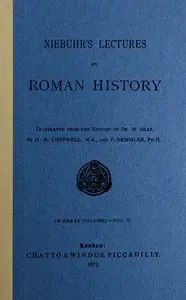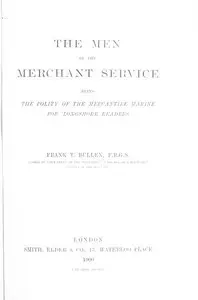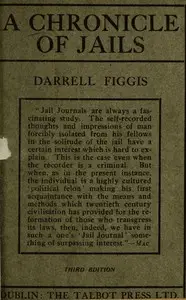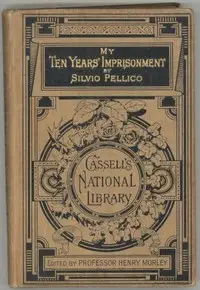"Niebuhr's Lectures on Roman History, Vol. 1 (of 3)" by Barthold Georg Niebuhr is a historical account written in the early 19th century. The work presents a series of lectures delivered by Niebuhr, focusing on the origins and early development of Roman history, blending critical analysis with narrative. It aims to provide readers with a comprehensive overview of the foundational aspects of Rome's past, including its historical sources and influential characters. The opening of this volume gives insight into Niebuhr's approach to the study of Roman history. He discusses the lectures he delivered at Bonn and highlights the importance of critical examinations of Roman historical sources, detailing various ancient authors and their contributions to the understanding of Rome’s development. The preface and introduction set the stage for an extensive inquiry into the nature of Roman history, addressing its origins, the authenticity of various historical accounts, and the significant impact of early Roman writers and historians in shaping the narrative of their civilization. Overall, it provides a thoughtful examination of how history was recorded and understood in the context of Rome's growth and legacy. (This is an automatically generated summary.)
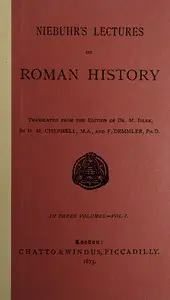
Niebuhr's lectures on Roman history, Vol. 1 (of 3)
By Barthold Georg Niebuhr
"Niebuhr's Lectures on Roman History, Vol. 1 (of 3)" by Barthold Georg Niebuhr is a historical account written in the early 19th century. The work pre...
Barthold Georg Niebuhr was a Danish–German statesman, banker, and historian who became Germany's leading historian of Ancient Rome and a founding father of modern scholarly historiography. By 1810 Niebuhr was inspiring German patriotism in students at the University of Berlin by his analysis of Roman economy and government. Niebuhr was a leader of the Romantic era and symbol of German national spirit that emerged after the defeat at Jena. But he was also deeply rooted in the classical spirit of the Age of Enlightenment in his intellectual presuppositions, his use of philologic analysis, and his emphasis on both general and particular phenomena in history.


